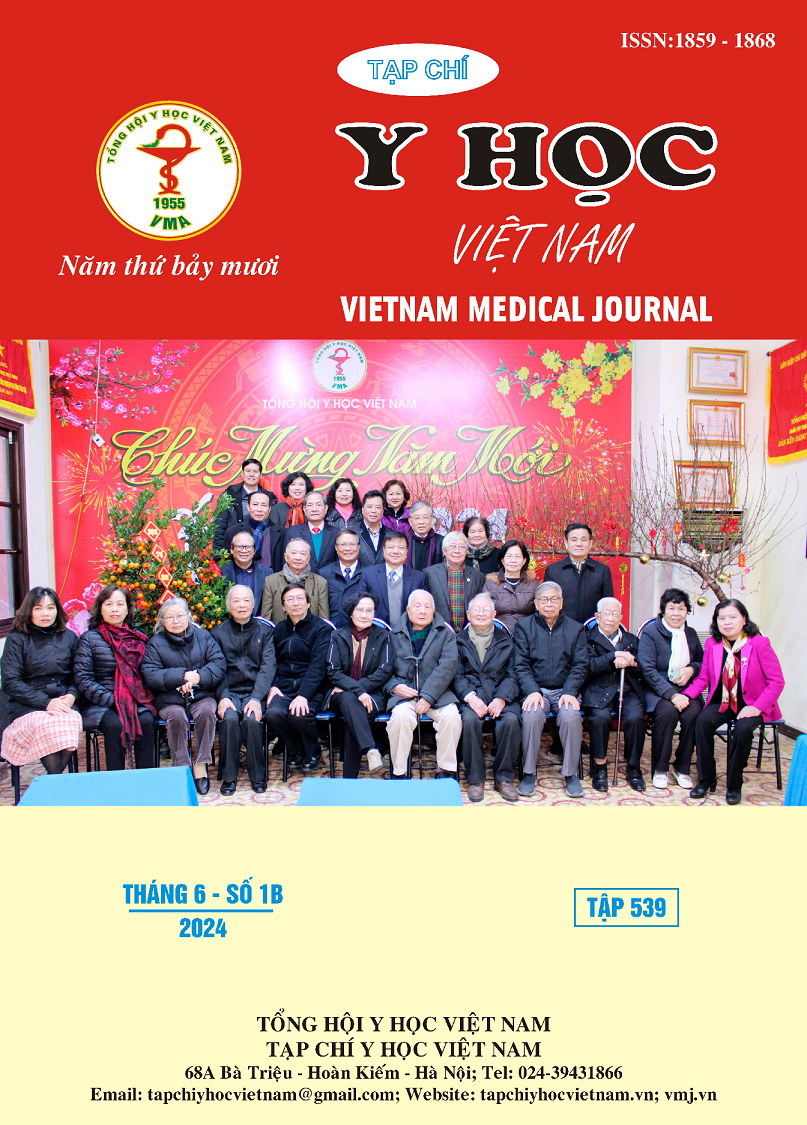THE QUALITY OF LIFE POST RADICAL CYSTECTOMY AND URINARY DIVERSION
Main Article Content
Abstract
Introduction: Radical cystectomy (RC) is a common treatment for bladder cancer, but it often leads to a significant decline in health-related quality of life (HRQOL) for patients. Despite this, there is limited research comparing the HRQOL outcomes of different urinary diversion methods. This study aims to compare the HRQOL outcomes of two commonly used urinary diversion methods. Methods: We conducted a retrospective analysis of female patients who underwent RC with either ileal orthotopic neobladder (IONB) or ileal conduit (IC) for bladder cancer at Binh Dan Hospital between November 2020 and October 2022. Patients were assessed using the European Organisation for Research and Treatment of Cancer (EORTC) Quality of Life Questionnaire (QLQ-C30) and the bladder cancer-specific instrument (QLQ-BLM30). Results: We analyzed HRQOL data from 102 consecutive bladder cancer patients, including 50 with IONB and 52 with IC. Patients in the IONB group were significantly younger than those in the IC group (median age: 58 vs. 65 years, respectively, p<0.05). Multivariate analysis revealed that patients with IONB had better scores for emotional functioning (86 vs. 78, p< 0.05), cognitive functioning (92 vs. 86, p<0.001), constipation (17 vs. 30, p<0.001), and abdominal bloating flatulence (13 vs. 24, p<0.001). However, there was no significant difference in sexual function between the IONB and IC groups (p < 0.05). Conclusions: Patients with ileal orthotopic neobladder had better health-related quality of life outcomes compared to those with ileal conduit diversion. Short-term outcomes regarding sexual function did not significantly differ between the two groups.
Article Details
References
2. Aaronson NK, Ahmedzai S, Bergman B, et al. The European Organization for Research and Treatment of Cancer QLQ-C30: a quality-of-life instrument for use in international clinical trials in oncology. JNCI: Journal of the National Cancer Institute. 1993;85(5):365-376.
3. Cerruto MA, D'Elia C, Siracusano S, et al. Health-related quality of life after radical cystectomy: a cross-sectional study with matched-pair analysis on ileal conduit vs ileal orthotopic neobladder diversion. Urology. 2017;108:82-89.
4. Francolini G, Ghoshal A, Caini S, et al. Quality of life after definitive treatment for bladder cancer: a systematic review and meta-analysis. Radiotherapy and Oncology. 2023:110038.
5. Gacci M, Saleh O, Cai T, et al. Quality of life in women undergoing urinary diversion for bladder cancer: results of a multicenter study among long-term disease-free survivors. Health and quality of life outcomes. 2013;11:1-6.
6. Singh V, Yadav R, Sinha RJ, Gupta DK. Prospective comparison of quality‐of‐life outcomes between ileal conduit urinary diversion and orthotopic neobladder reconstruction after radical cystectomy: a statistical model. BJU international. 2014;113(5):726-732.
7. Siracusano S, D'ELIA C, Cerruto MA, et al. Quality of life in patients with bladder cancer undergoing ileal conduit: a comparison of women versus men. in vivo. 2018;32(1):139-143.
8. Xing W, Zeng S, Xu Z, Xing S, Liu Q. Comparison of health-related quality of life between ileal conduit diversion and orthotopic neobladder in women: a meta-analysis. Frontiers in Oncology. 2022;12:862884.


